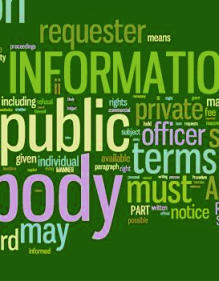
I received a press statement from KwaZulu-Natal’s cooperative governance MEC in June announcing that the local government would release the full report – but further down the statement it tells the media to apply for it through the Promotion of Access to Information Act.
This confuses me: Why would the MEC say the report would be released if she wants the public to apply for it?
Befuddled
Dear Befuddled
It is not surprising that you are confused. The MEC appears to be saying one thing but intending another. This may be because of the nature and circumstances surrounding the Manase report.
The Manase forensic investigation was commissioned after the auditor-general reported irregular expenditure of more than R500-million in the eThekwini municipality. The report implicated a number of senior officials in widespread corruption and maladministration. The KwaZulu-Natal government initially refused to release the full report, but in a media statement earlier this year the MEC of cooperative governance and traditional affairs, Numusa Dube, announced that the Manase report would be “officially available to members of the public”.
Dube went on to say that any person who wished to access the complete report had to make an application in terms of the Promotion of Access to Information Act.
Various groups, including several political parties, NGOs and media houses, subsequently applied under the act for access to the report. They received it two months later.
Dube’s reluctance to release the report and her later decision to allow access only through the act has been controversial. However, it is important to remember that an externally produced forensic report into corruption allegations contains information and findings that have not been tested in court or by a disciplinary body.
The municipality is already facing a R10m defamation action by its previous city manager, Michael Sutcliffe, arising out of allegations in the report. It may be that Dube sees applying for access as a way to manage the flow of potentially highly prejudicial information.
But it is problematic to create the impression that a document is available and then require those who want access to use the act.
The act’s application process can be a highly effective way of obtaining information. However, in this situation it caused unnecessary delays. Once a request has been submitted, the public entity has to respond within 30 days by either providing the information requested or alerting the requester of its need for an extension of a further 30 days.
The MEC requested the extension, alleging that consultations with the anti-corruption task team needed to take place before a decision could be taken on the applications. Although there may be legitimate reasons for an extension, the fact remains that the process resulted in a two-month delay after the MEC had specifically stated that the report was “available”. In other situations, such a delay could render the information redundant.
Many requests under the act do not result in access to the information requested being granted. Corruption Watch requested access to the Manase report in 2012 without success. The act does provide legal remedies for this problem, but they are time-consuming and costly. In the case of the Manase report, the process of applications was contentious and drawn-out. This is an unfortunate distraction from the issues at stake.
Even in difficult and contentious matters, once a decision has been made to release information, the state should not use the act’s application process to create an additional hurdle and unnecessary delays in accessing information.
• This article was first published in Sunday Times: Business Times

